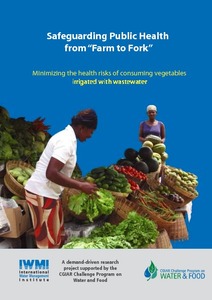Location
The International Water Management Institute (IWMI) is a non-profit, scientific research organization focusing on the sustainable use of water and land resources in developing countries. It is headquartered in Colombo, Sri Lanka, with regional offices across Asia and Africa. IWMI works in partnership with governments, civil society and the private sector to develop scalable agricultural water management solutions that have a real impact on poverty reduction, food security and ecosystem health. IWMI is a member of CGIAR, a global research partnership for a food-secure future.
IWMI’s Mission is to provide evidence-based solutions to sustainably manage water and land resources for food security, people’s livelihoods and the environment.
IWMI’s Vision, as reflected in the Strategy 2014-2018, is ‘a water-secure world’. IWMI targets water and land management challenges faced by poor communities in the developing countries, and through this contributes towards the achievement of the United Nations Millennium Development Goals (MDGs) of reducing poverty and hunger, and maintaining a sustainable environment. These are also the goals of CGIAR.
IWMI works through collaborative research with many partners in the North and South, and targets policymakers, development agencies, individual farmers and private sector organizations.
Resources
Displaying 606 - 610 of 959Safeguarding public health from farm to fork
Small tank cascade systems in the Walawe River Basin [Sri Lanka].
Stakeholder participation in developing institutions for integrated water resources management: lessons from Asia
Urban malaria in Africa: proceedings of a Technical Consultation on the Strategy for Assessment and Control of Urban Malaria, Pretoria, South Africa, 02-05 December 2004
Working wetlands: classifying wetland potential for agriculture
This paper reports on a form of multi-criteria analysis that provides a formal approach for evaluating the suitability of a wetland for specific agricultural uses, and ensures that explicit consideration is given to the possible consequences of such utilization. The method is based on a hybrid of ideas taken from concepts and methodologies related to: environmental flow assessments, land suitability classification and the hazard evaluation procedures used in the design of dams.






